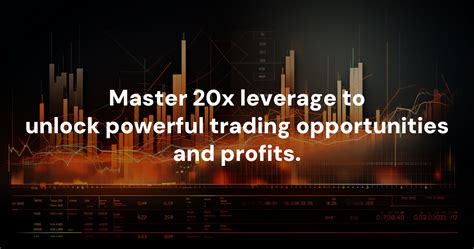What is Leverage Trading?

Leverage trading is a strategy that allows traders to increase their trading potential by using borrowed capital. It is a powerful tool that can amplify profits, but it also comes with increased risks.
How Leverage Works
Leverage is expressed as a ratio, such as 2:1 or 5:1. This means that for every $1 of equity, a trader can control $2 or $5 worth of assets. For example, with a 2:1 leverage, a trader with $1,000 in equity can control $2,000 worth of assets.
Benefits of Leverage Trading
- Increased Profit Potential: Leverage can exponentially increase profits if the market moves in the trader’s favor.
- Reduced Trading Capital: Traders can control a larger position with less capital, allowing them to trade with limited funds.
- Diversification: Leverage can help traders diversify their portfolio by allowing them to trade multiple assets with a single account.
Risks of Leverage Trading
- Increased Losses: If the market moves against the trader, losses can be amplified by the leverage used.
- Margin Calls: If the trader’s equity falls below a certain threshold, the broker may issue a margin call, forcing the trader to close positions or add funds.
- Stress and Emotional Trading: Leverage trading can induce stress and lead to emotional decision-making.
Why Leverage Matters
- Accelerated Wealth Creation: Leverage can provide the opportunity for traders to grow their wealth more rapidly.
- Market Access: It allows traders with limited capital to access larger markets.
- Reduced Trading Costs: By using leverage, traders can reduce trading costs per contract.
How to Leverage Trade
- Choose a Broker: Select a reputable broker that offers leverage trading.
- Understand the Risks: Thoroughly research and understand the risks associated with leverage trading.
- Determine the Leverage Ratio: Decide on the appropriate leverage ratio based on risk tolerance and experience.
- Manage Your Position: Monitor your positions closely and adjust leverage as needed to prevent margin calls.
- Exit Positions Strategically: Plan your exit strategy to minimize losses and maximize profits.
Innovative Leveraged Applications
Leverage trading can be applied in various innovative ways, such as:
- Automated Leverage Management: Algorithms can automatically adjust leverage based on market conditions and risk parameters.
- Cross-Margining: Combining multiple accounts under a single umbrella to share margin resources.
- Synthetic Positions: Creating customized positions by combining leveraged assets to achieve specific investment objectives.
Useful Tables
| Leverage Ratio | Maximum Position Size | Margin Required |
|---|---|---|
| 2:1 | $2,000 | $1,000 |
| 5:1 | $5,000 | $1,000 |
| 10:1 | $10,000 | $1,000 |
| Risk Factor | Impact |
|---|---|
| High Leverage | Amplifies losses |
| Market Volatility | Increases risk of margin calls |
| Trader Experience | Lack of experience increases risk |
| Benefit Factor | Impact |
|---|---|
| Profit Potential | Increased profit opportunities |
| Capital Efficiency | Control larger positions with less capital |
| Portfolio Diversification | Trade multiple assets with a single account |
Frequently Asked Questions (FAQs)
-
What is the ideal leverage ratio?
– The ideal leverage ratio depends on the trader’s risk tolerance and experience. -
How much leverage is considered high?
– Leverage ratios of 10:1 or higher are generally considered high and increase the risk of margin calls. -
Can leverage trading make me rich?
– While leverage trading can provide opportunities for profit, it can also lead to substantial losses. -
Is leverage trading risky?
– Yes, leverage trading carries a high level of risk and is not suitable for all traders. -
How can I manage leverage risk?
– Monitor your positions closely, adjust leverage as needed, and have a solid exit strategy. -
What are the advantages of leverage trading?
– Increased profit potential, reduced trading capital, and portfolio diversification. -
What are the disadvantages of leverage trading?
– Increased losses, margin calls, and stress. -
Is leverage trading suitable for beginners?
– No, leverage trading is not recommended for inexperienced traders or those with low risk tolerance.



